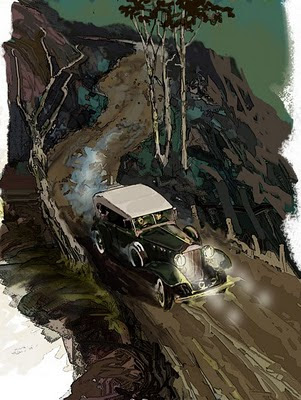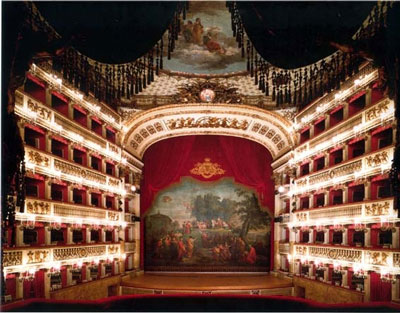
Delving into your own ignorance sometimes has the secondary effect of revealing to you how incurious you've been over the years. Certainly I've heard the name Wuthering Heights for most of my life, and probably knew the story through a movie or television adaptation long before I read it, but it never occurred to me to wonder what "wuthering" meant. I assumed that it was just an atmospheric name given to a kind of gloomy place and if anyone had asked me, I would hazarded the guess that Bronte just invented it.
However, an early sentence in David Mitchell's Cloud Atlas changed all that. In describing a very basic church, his narrator says "No organist played a Magnificat but the wind in the flue chimney, no choir sang a Nunc Dimittis but the wuthering gulls, yet I fancy the Creator was not displeazed."
Now leaving aside the fact that I have no idea what a Nunc Dimittis is, I was quite surprised to see that wuthering in there as an adjective for gulls. And it doesn't help me figure out the Wuthering Heights angle either. I suppose I always thought that "wuthering" in the book title meant something like "stormy" or "foreboding". But "wuthering gulls" doesn't seem that it could have this threatening aspect. It seems more like wandering or airborne or even cawing, and maybe in the context of the sentence, it would be more likely to have something to do with the sound they make. I am not going to get any further on this by deduction, so let's cut to the chase.
Okay. "Wuthering" comes from Northern English dialect, and is a version of the Scot "whither", to blow fiercely. It derives from the Old Norse word for "squall", which is hvitha. The sense in which Wuthering Heights and wuthering gulls come together is that both are buffeted by and at the mercy of strong winds. The Heights would simply be battered; the gulls, more mobile, wind-tossed.
Uttered on the shores of an island off the coast of New Zealand by a San Franciscan, this seems like an exceptionally long way for a word of local dialect to have traveled. Perhaps it was wuthered there.




































